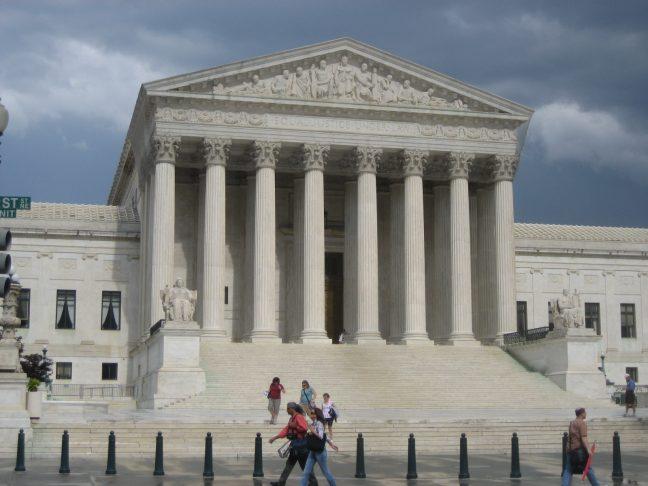President Donald Trump signed an executive order March 21 that would withhold federal funding from universities that do not protect free speech on college campuses. To receive federal research funding, universities now have to certify they are complying with the First Amendment.
This order comes a little more than a month after a conservative activist was assaulted on the University of California-Berkeley campus, where he was helping a student organization recruit members.
But this executive order means little to the University of Wisconsin — it actually corroborates the UW System’s freedom of expression policy. According to the policy, a student who is found disrupting another’s free expression twice will be suspended. A third offense will lead to expulsion.
There are striking similarities between Trump’s order and UW’s free speech policy. Both are an attempt to make sure the heckler’s veto does not silence political groups on campus. Both were born out of the silencing of conservative ideas on campus — UW’s policy came out a nearly a year after students protested conservative political pundit Ben Shapiro’s appearance on campus in 2016 (though not all conservative views are hateful, Shapiro’s lack of concern for people of color is clear). And both leave students and universities unsure of how to navigate the fine line between freedom of expression and creating an environment where students of marginalized backgrounds feel comfortable and accepted.
A recent Gallup-Knight Foundation survey exhibits this issue quite well. The survey reports college students believe protecting the right to free speech and encouraging diversity and inclusion is extremely important for a healthy democracy, at rates of 56 percent and 52 percent, respectively. But when asked which principle is more important, college students chose the encouragement of diversity and inclusion, albeit by a very narrow margin — 53 percent to 46 percent.
When taken out of context, it is easy for opponents of diversity and inclusion initiatives to say “53 percent of college students don’t believe in free speech!” But that could not be further from the truth. In reality, a small majority of college students are standing up against the negative effects of the First Amendment.
Conservatives’ self-victimization on college campuses is getting old
There are several types of speech that do not enjoy first amendment protection — unfortunately, hate speech is not one of them. This sad reality has been brought to the U.S. Supreme Court time and time again.
In the 2017 case Matal v. Tam, the court ruled viewpoint discrimination — even against viewpoints that are considered racially offensive — is unconstitutional. In other words, speech which some may view as racially offensive is protected against outright and even lesser restrictions.
Movements like #TheRealUW shed light on how upsetting this can be. After a racist incident at a UW football game in 2016, where a fan wore a mask of President Barack Obama with a noose around their neck, Chancellor Rebecca Blank released a statement that said though the costume was offensive, the university should refrain from making rules that outlaw such behavior.
War of words: Proposed legislation reignites tensions on campus over free speech
Yes, this incident is a distant memory to some — but its implications are felt by students of color each day. And yes, it may have been within this fan’s rights to be blatantly offensive. But just because hate speech and racist expression is within one’s rights, does not make it right.
American jurisprudence should not be a guide for morality — it should reflect morality as it changes over time. If it did not, we would still be living by the decisions of Dred Scott v. Sanford or Plessy v. Ferguson. The Gallup-Knight Foundation survey shows opinions regarding free expression versus an inclusive environment is changing. It’s time American jurisprudence changes with it.
Abigail Steinberg ([email protected]) is a sophomore majoring in political science and journalism.




















